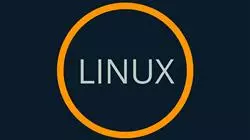University certificate
The world's largest faculty of medicine”
Introduction to the Program
Mejora tus conocimientos en el Linux Operating System for Medicine a través de este programa, donde encontrarás el mejor material didáctico con casos clínicos reales. Conoce aquí los últimos avances en la especialidad para poder realizar una praxis médica de calidad”

Es un objetivo fundamental del programa acercar al alumno y difundir el conocimiento informático que ya se aplica en otras áreas del conocimiento, pero que tiene una mínima implantación en el mundo médico, y a pesar de que para que la medicina Genómica sea una realidad, es preciso interpretar con exactitud el volumen ingente de información clínica disponible actualmente y asociarlo a los datos biológicos que se generan tras un análisis bioinformático. Si bien este es un desafío difícil, permitirá que los efectos de la variación genética y las terapias potenciales se exploren de forma rápida, económica y con mayor precisión de la que se logra en el momento actual.
Los humanos no están naturalmente equipados para percibir e interpretar secuencias genómicas ni para comprender todos los mecanismos, vías e interacciones que tienen lugar dentro de una célula viva, ni para tomar decisiones médicas con decenas o centenares de variables. Para avanzar, se requiere un sistema con capacidad analítica sobrehumana que simplifique el entorno de trabajo y muestre las relaciones y proximidades entre unas variables u otras. En genómica y biología, ahora se reconoce que es mejor gastar los recursos en nuevas técnicas computacionales que en la recolección de datos puros, algo que posiblemente pasa igual en medicina y, por supuesto, Oncología.
Se tienen millones de datos o publicaciones, pero cuando son analizadas por los médicos o biólogos, las conclusiones son totalmente subjetivas y con relación a las publicaciones o datos disponibles, que son priorizados de forma arbitraria, lo que genera un conocimiento parcial, y por supuesto, cada vez más distanciado del conocimiento genético y biológico disponible y apoyado en computación, por lo que un paso de gigante en la implantación de la medicina de precisión es disminuir esta distancia mediante el análisis masivo de la información médica y farmacológica disponible.
Actualiza tus conocimientos através del programa en Linux Operating System for Medicine”
Este Postgraduate certificate en Linux Operating System for Medicine contiene el programa universitario más completo y actualizado del mercado. Sus características más destacadas son:
- Desarrollo de casos prácticos presentados por expertos en Sistema Operativo Linux para Medicina
- Sus contenidos gráficos, esquemáticos y eminentemente prácticos con los que están concebidos, recogen una información científica y práctica sobre aquellas disciplinas indispensables para el ejercicio profesional
- Novedades sobre Sistema Operativo Linux para Medicina
- Contiene ejercicios prácticos donde realizar el proceso de autoevaluación para mejorar el aprendizaje
- Con especial hincapié en metodologías innovadoras en Sistema Operativo Linux para Medicina
- Todo esto se complementará con lecciones teóricas, preguntas al experto, foros de discusión de temas controvertidos y trabajos de reflexión individual
- Disponibilidad de los contenidos desde cualquier dispositivo fijo o portátil con conexión a internet
Este Postgraduate certificate puede ser la mejor inversión que puedes hacer en la selección de un programa de actualización por dos motivos: además de poner al día tus conocimientos en el Linux Operating System for Medicine, obtendrás un titulo por TECH”
Incluye en su cuadro docente profesionales pertenecientes al ámbito del Linux Operating System for Medicine, que vierten en esta capacitación la experiencia de su trabajo, además de reconocidos especialistas pertenecientes a sociedades de referencia y universidades de prestigio.
Gracias a su contenido multimedia elaborado con la última tecnología educativa, este programa permitirá al profesional un aprendizaje situado y contextual, es decir, un entorno simulado que proporcionará un aprendizaje inmersivo programado para entrenarse ante situaciones reales.
El diseño de este programa está centrado en el aprendizaje basado en problemas, mediante el cual el alumno deberá tratar de resolver las distintas situaciones de práctica profesional que se le planteen a lo largo del Curso Académico. Para ello, el alumno contará con la ayuda de un novedoso sistema de vídeo interactivo realizado por reconocidos expertos en el campo del Linux Operating System for Medicine y con gran experiencia docente.
Aumenta tu seguridad en la toma de decisiones actualizando tus conocimientos a través de este programa"

Aprovecha la oportunidad para conocer los últimos avances en Linux Operating System for Medicine y mejorar la atención a tus pacientes"
Why study at TECH?
TECH is the world’s largest online university. With an impressive catalog of more than 14,000 university programs available in 11 languages, it is positioned as a leader in employability, with a 99% job placement rate. In addition, it relies on an enormous faculty of more than 6,000 professors of the highest international renown.

Study at the world's largest online university and guarantee your professional success. The future starts at TECH”
The world’s best online university according to FORBES
The prestigious Forbes magazine, specialized in business and finance, has highlighted TECH as “the world's best online university” This is what they have recently stated in an article in their digital edition in which they echo the success story of this institution, “thanks to the academic offer it provides, the selection of its teaching staff, and an innovative learning method aimed at educating the professionals of the future”
A revolutionary study method, a cutting-edge faculty and a practical focus: the key to TECH's success.
The most complete study plans on the university scene
TECH offers the most complete study plans on the university scene, with syllabuses that cover fundamental concepts and, at the same time, the main scientific advances in their specific scientific areas. In addition, these programs are continuously being updated to guarantee students the academic vanguard and the most in-demand professional skills. In this way, the university's qualifications provide its graduates with a significant advantage to propel their careers to success.
TECH offers the most comprehensive and intensive study plans on the current university scene.
A world-class teaching staff
TECH's teaching staff is made up of more than 6,000 professors with the highest international recognition. Professors, researchers and top executives of multinational companies, including Isaiah Covington, performance coach of the Boston Celtics; Magda Romanska, principal investigator at Harvard MetaLAB; Ignacio Wistumba, chairman of the department of translational molecular pathology at MD Anderson Cancer Center; and D.W. Pine, creative director of TIME magazine, among others.
Internationally renowned experts, specialized in different branches of Health, Technology, Communication and Business, form part of the TECH faculty.
A unique learning method
TECH is the first university to use Relearning in all its programs. It is the best online learning methodology, accredited with international teaching quality certifications, provided by prestigious educational agencies. In addition, this disruptive educational model is complemented with the “Case Method”, thereby setting up a unique online teaching strategy. Innovative teaching resources are also implemented, including detailed videos, infographics and interactive summaries.
TECH combines Relearning and the Case Method in all its university programs to guarantee excellent theoretical and practical learning, studying whenever and wherever you want.
The world's largest online university
TECH is the world’s largest online university. We are the largest educational institution, with the best and widest online educational catalog, one hundred percent online and covering the vast majority of areas of knowledge. We offer a large selection of our own degrees and accredited online undergraduate and postgraduate degrees. In total, more than 14,000 university degrees, in eleven different languages, make us the largest educational largest in the world.
TECH has the world's most extensive catalog of academic and official programs, available in more than 11 languages.
Google Premier Partner
The American technology giant has awarded TECH the Google Google Premier Partner badge. This award, which is only available to 3% of the world's companies, highlights the efficient, flexible and tailored experience that this university provides to students. The recognition as a Google Premier Partner not only accredits the maximum rigor, performance and investment in TECH's digital infrastructures, but also places this university as one of the world's leading technology companies.
Google has positioned TECH in the top 3% of the world's most important technology companies by awarding it its Google Premier Partner badge.
The official online university of the NBA
TECH is the official online university of the NBA. Thanks to our agreement with the biggest league in basketball, we offer our students exclusive university programs, as well as a wide variety of educational resources focused on the business of the league and other areas of the sports industry. Each program is made up of a uniquely designed syllabus and features exceptional guest hosts: professionals with a distinguished sports background who will offer their expertise on the most relevant topics.
TECH has been selected by the NBA, the world's top basketball league, as its official online university.
The top-rated university by its students
Students have positioned TECH as the world's top-rated university on the main review websites, with a highest rating of 4.9 out of 5, obtained from more than 1,000 reviews. These results consolidate TECH as the benchmark university institution at an international level, reflecting the excellence and positive impact of its educational model.” reflecting the excellence and positive impact of its educational model.”
TECH is the world’s top-rated university by its students.
Leaders in employability
TECH has managed to become the leading university in employability. 99% of its students obtain jobs in the academic field they have studied, within one year of completing any of the university's programs. A similar number achieve immediate career enhancement. All this thanks to a study methodology that bases its effectiveness on the acquisition of practical skills, which are absolutely necessary for professional development.
99% of TECH graduates find a job within a year of completing their studies.
Postgraduate Certificate in Linux Operating System for Medicine
The Linux operating system has been widely used in the field of Medicine due to its stability, security and ability to customize and adapt the system to the specific needs of the medical industry. One of the areas in which Linux has been particularly useful is in the management of electronic medical records. In this regard, it is used in many open source EMR systems, such as OpenEMR and GNU Health, so an upgrade in all of these areas will be of great value to the medical professional. In fact, this is something you will be able to do with this Postgraduate Certificate in Linux Operating System for Medicine.
Upgrade in the Linux environment with all the guarantees
Although Computer Science has traditionally had a limited presence in the medical field, it is essential to promote its use to enhance Genomic Medicine and other key areas. Therefore, the Postgraduate Certificate in Linux Operating System for Medicine will provide you with valuable computer tools that are already being used in other areas of knowledge. In this sense, you will learn about the Linux environment, the basics of navigation and the command line, all from home and with a team of great experts in operating ecosystems at your disposal.







